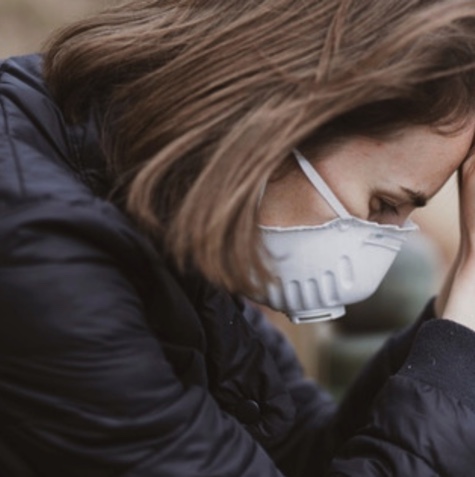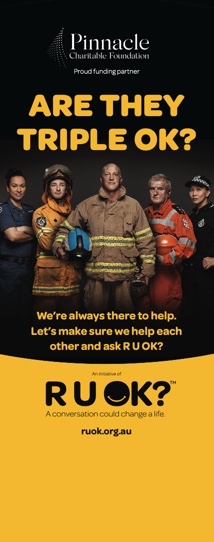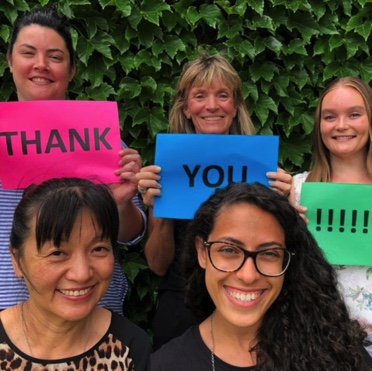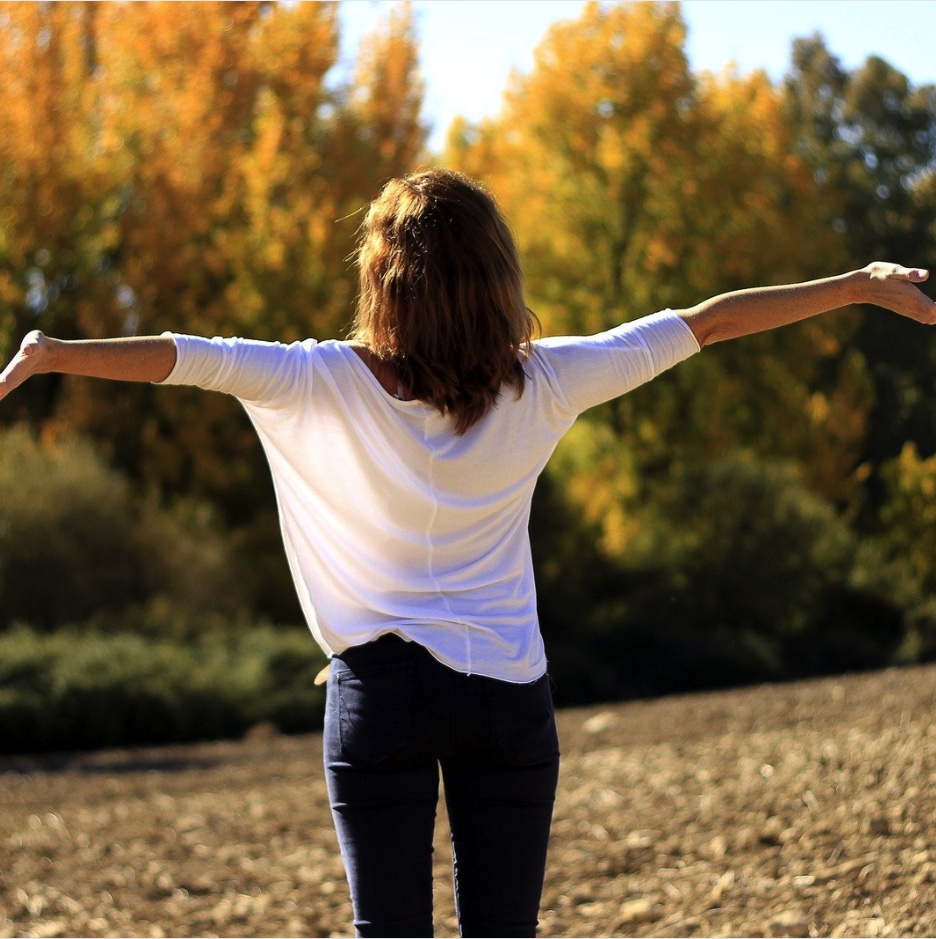
Other Newsletter Reads

Addressing a critical need: promoting strong mental wellbeing and supporting prevention and early intervention strategies to reduce mental illness
R U OK? Funding: The Foundation is helping the continued development of the “Are They Triple OK?” Campaign, created with the Foundation and R U OK? in early 2019 in support of police, emergency workers and first responders.
The Campaign is headlined by 45 champions drawn from each service across Australia, and following the horrific bushfire season in late 2019 / early 2020 has become a powerful tool encouraging conversation and connection. To date 3,000 free, comprehensive resource kits have been downloaded from the R U OK? site, and the Campaign has reached a cumulative audience of two million Australians.
In FY21 the next iteration of the Campaign will extend messaging from colleagues and co-workers out to family and friends of police and emergency service workers. As explained by CEO Katherine Newton: With a broader audience, this next phase will continue to humanise the conversation. It will encourage these family and friends to normalise talking about the challenges of work and life, and to help guide those who may need it - or their loved ones who are also affected - towards professional help-seeking pathways.

batyr funding: Together with Palisade, a batyr presence across the Central West of NSW has been established over the past three years, steadily growing in influence and reaching more than 2,200 high school children. Relationships on the ground have reached a point where there is a strong regional presence of supporters and active volunteers who advocate for batyr, engage with local communities to fundraise, and run events and activities. Future funding will support batyr to continue building traction within Central West communities, while also enabling the organisation to consider exploring a similar footprint in other regional areas of NSW.
How this is best approached will to a large extent be influenced by the longer term impacts of COVID-19, which as CEO Nic Brown recently communicated to supporters, have already profoundly affected batyr:
"April, May and June of this year were incredibly challenging times for batyr, our community and the world. Reflecting on this period however, I am proud of what we have managed to achieve, embracing our bold value to find new ways to support young people’s mental health and wellbeing. In fact, due to the team moving quickly to adapt to online and thanks to the support of our generous community, nearly 5000 young people have already experienced batyr online!"

ReachOut Australia Funding: This partnership, established together with Antipodes three years ago, enables ReachOut to quickly address relevant and important concerns for young people. Proactively offering “real time” information and support when hot button media issues arise is incredibly important to increasing help seeking, as has been evident since COVID-19 restrictions came into force across the country.
Since COVID-19 restrictions were first put in place, ReachOut has been providing digital mental health support for young people. CEO of ReachOut Ashley de Silva explains that levels of stress for young people remain high despite the easing of restrictions in some states:
It is important we respond to young people’s changing mental health needs as the impacts of the pandemic continue to play out. ReachOut continues to provide COVID-19 specific support for young people and parents. We encourage young people to take a proactive approach when it comes to their mental health and to seek additional support if they need it. For parents and carers, it’s important to find time for regular check-ins with your young person, particularly if you notice things don’t seem quite right.
Well in excess of 1.5 million people seeking help have accessed ReachOut services since 16 March – when physical distancing messages came into effect – which is a roughly 56% increase compared to the same period last year.




